Testing and Counseling on HIV/STI and Sexual Health
Counseling
Counseling Centers
PEP – Post-Exposure Prophylaxis
Testing Services
Time for Testing
PrEP – Pre-Exposure Prophylaxis
HIV Transmission
Hygiene
Information on HIV and Other STI
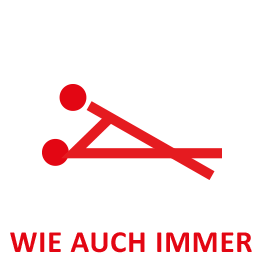
General information about HIV / AIDS / STI and sexual health
Counseling
Hetero? Homo? Bi? Trans? …?
ANYWAY – We, the staff members of the counseling centers on HIV and other sexually transmitted infections (STI) of the public health departments in NRW (North-Rhine Westphalia) are there for you.
We provide confidential, anonymous, unprejudiced and free counseling on the following topics:
- HIV and other STI for example chlamydia, gonorrhea/clap, hepatitis, syphilis/lues
- Test options for HIV and other STI
- Prevention and protection
- Sexuality and partnership
- Sexual health
- Pre-Exposure Prophylaxis (PrEP) and Post-Exposure Prophylaxis (PEP)
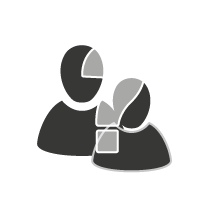
General information about HIV / AIDS / STI and sexual health
HIV-Transmission
Do you worry about being infected with HIV or another sexually transmitted infection (STI)? A counseling and – if necessary – a test brings clarity.
We, the staff members of the counseling centers on HIV and other sexually transmitted infections (STI), are there for you. We offer confidential, anonymous, individual, accepting and free counseling.
Get detailed information about counseling and testing services at your local health department. We will be glad to inform you about our services. Please contact us.
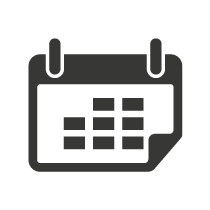
General information about HIV / AIDS / STI and sexual health
The Right Time For An HIV Test
HIV Test (laboratory-based diagnostic)
Please enter the day of your last potential high-risk contact and check the earliest possible day for a laboratory test. At the earliest six weeks after a possible infection a laboratory test can most likely verify or exclude an HIV infection.
When was your last potential high-risk contact?
HIV Test (rapid test)
Please enter the day of your last potential high-risk contact and check the earliest possible day for a rapid test. At the earliest twelve weeks after a possible infection a rapid test can most likely verify or exclude an HIV infection.
When was your last potential high-risk contact?
Important Advice!
Please inform your counselor if you take medicine (PrEP or PEP) to reduce the HIV infection risk. If this is the case the counselor will explain if and when a reliable test result is going to be expected.

General information about HIV / AIDS / STI and sexual health
Testing Services
We offer confidential, anonymous and free counseling on HIV and other sexually transmitted infections (STI).
Moreover it’s possible to get tested for HIV and syphilis anonymously, confidentially and free of charge. Some HIV/STI counseling centers also provide tests for chlamydia and gonorrhea/clap.
Please ask about the testing services at your local public health department.
HIV-Test
The HIV test – often called AIDS test – is performed on blood and looks for HIV antibodies and antigens or just for the antibodies. The antigen is a HI-Virus component, while HIV antibodies are produced by the immune system after you’ve been exposed to HIV.
The HIV test is not an integral part of routine health care at your family doctor. HIV is not detected in a general blood test.
According to law the HIV test may only be performed if you opt in.
The time between the exposure to HIV and the detectability of HIV antibodies in the blood varies in humans and depends on the type of test used to detect HIV (laboratory-based diagnostic or rapid test): 6 weeks for laboratory diagnostic and 12 weeks for rapid testing.
Which test is recommended for you will be explained during the counseling. If you have questions about transmission risks, how to protect yourself etc., we will be glad to talk about. Counseling and HIV testing are anonymous, confidential and free of charge.
Nowadays an HIV infection is highly treatable in case you’re diagnosed in good time. Therefore it’s important to get tested for HIV early.
Syphilis-Test
The syphilis test is performed on blood and looks for syphilis antibodies. These antibodies are produced by the human immune system against the syphilis pathogen.
Please consider that syphilis cannot be detected in the blood earlier than two/three weeks after you got infected and it takes twelve weeks after your last high-risk contact until a syphilis can reliably be excluded.
A syphilis test may only be performed with the consent of the patient. After the counseling a blood sample will be taken from your vein – fasting is not required. It will take a maximum of a week before you receive the result of your test. It will be shown to you in a second personal contact at your public health department.
The test is free of charge, anonymous and confidential.
Chlamydien-Test
Chlamydia can be transmitted via oral, vaginal and anal sex. The test is performed on urine and/or swabs.
A chlamydia infection can be earliest detected two or three weeks after the last high-risk contact.
It will take a maximum of a week before you receive the result of your test.
Gonokokken-Test
Gonorrhea can be transmitted via oral, vaginal and anal sex. The test is performed and/or swabs.
Gonorrhea can be earliest detected one to three weeks after the last high-risk contact.
It will take a maximum of a week before you receive the result of your test.

General information about HIV / AIDS / STI and sexual health
AIDS/STI Counseling Centers in NRW
Search specifically for advice centers in your area.
AIDS/STI Counseling Centers in NRW

General information about HIV / AIDS / STI and sexual health
Information On HIV/AIDS And Other Sexually Transmitted Infections (STI)
On the following pages you will find information on HIV/AIDS and additional sexually transmitted infections (STI).
HIV/AIDS
Hepatitis A
Syphilis (Lues)
Chlamydien
Hepatitis B
Gonorrhoe
Hepatitis C
AIDS/STI counseling centers of public health departments in NRW (North Rhine-Westphalia) will answer your questions and give you advice. The counseling service is uncomplicated and free of charge. Your requests will be treated confidentially and anonymously.
They also offer anonymous, free of charge testing for HIV (HIV-antibody/antigen combined test) and syphilis.
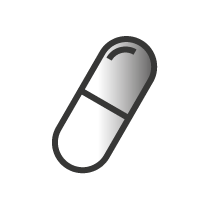
General information about HIV / AIDS / STI and sexual health
PEP – Post-Expositions-Prophylaxe
is the acronym for Post-Exposure Prophylaxis. PEP means you’re taking a combination of antiretroviral medicines (medication against HIV) to minimize the infection risk after a recent possible exposure to HIV.
How does PEP work?
PEP is suitable for a person who is HIV-negative – means not infected with HIV – and has had a clearly defined high-risk contact. You’ll be on antiretroviral medication (medicines against HIV) for four weeks. The medication will most likely prevent becoming infected.
PEP must be started as soon as possible after a recent potential exposure to HIV. Preferably you start PEP within the first two hours after you’ve been exposed to HIV. If not possible PEP should get started during the first 24 hours but not later than 48 hours after the exposure. It’s questionable if PEP is still effective when started up to 72 hours after the exposure
Considerations before taking PEP
- A medical consultation is necessary before you take PEP.
- PEP can only prevent an HIV infection – it does not protect
against any other sexually transmitted infection. - PEP should be started as soon as possible after a recent high-risk contact.
- PEP medication has to be taken for four weeks.
- As follow up you need to get tested for HIV six and twelve weeks after PEP is finished.
Where can I get PEP?
Emergency rooms (ER) or outpatient departments (OPD) of certain hospitals provide PEP day and night – for contact information look here. At daytime PEP is also available at medical practices specialized on HIV.
Who pays the costs?
PEP is strictly used in emergency situations. A medical consultation will clarify if PEP is necessary and the medication has to be prescribed by the doctor. Health insurances will pay the costs only at high risk of HIV transmission.
AIDS/STI Counseling Centers of public health departments in NRW provide anonymous, confidential and free counseling.

General information about HIV / AIDS / STI and sexual health
PrEP – Prä-Expositions-Prophylaxe
is the acronym for Pre-Exposure Prophylaxis. PrEP means you’re at very high risk for HIV and take daily medication to prevent becoming infected. In Germany PrEP is only allowed in connection with safer sex.
How does PrEP work?
PrEP is suitable for a person who is HIV-negative – means not infected with HIV – and wants to protect against HIV. It has to be started – before you’re having a high-risk contact. If the medication is taken consistently it can prevent HIV from taking hold and reproducing. In consequence the HIV infection is prevented.
Considerations before taking PrEP
- When you start taking PrEP you may not be HIV-infected. An already existing HIV infection could not be treated sufficiently with the PrEP medication.
- PrEP does not protect against any other sexually transmitted infection.
- You have to be regularly examined for HIV and monitored for kidney function.
- Tests for additional sexually transmitted infections as chlamydia, gonorrhea and syphilis should be performed before you start PrEP with regular follow-ups while you’re taking the medication.
- Vaccination against hepatitis A and B makes sense; if you havn’t had one regular testing for hepatitis A and B is important while you’re taking PrEP.
How safe is PrEP?
The protection through PrEP has been evidenced by studies (“Ipergay” and “PROUD”, 2015). The protective effect is about as high as with condoms.
Where can I get PrEP?
PrEP is composed of prescription drugs and should be prescribed by specially trained doctors.
Who pays the costs?
The costs of PrEP, including the necessary pre- and follow-up examinations, will be incurred by the statutory health insurance. Private insured patients can ask their health insurance for meeting the costs.
Side effects
While you’re taking PrEP the following side effects may occur:
- headache
- bowel complaint
- kidney damage
- decrease in bone density
Generally those side effects disappear again after you stop taking PrEP.
Good to know
We, the staff members of the counseling centers on HIV and other sexually transmitted infections (STI), are there for you. We offer confidential, anonymous an free counseling and testing on HIV.
AIDS/STI Counseling Centers in NRW
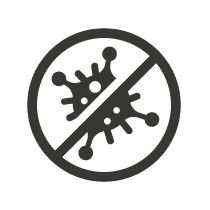
General information about HIV / AIDS / STI and sexual health
Information on Hygiene
The following information provides advice and tips to prevent sexually transmitted infections (STI) and other infections and diseases of the intimate area.
STI are usually very easy to transmit. Some can be detected by observing changes or discomfort, others only by specific examinations. To get the correct diagnosis and therapy, a counseling and medical examination is necessary.
The Public Health Departments in NRW (North Rhine-Westphalia) offer anonymous and free counseling. Please ask at your local health department if specific examinations and treatments are also provided and if costs may arise.
Information on Women’s Hygiene
Information on Men’s Hygiene
Good to know
Therefore an HIV Test is recommended after a potential exposure to HIV. The staff members of the public health departments in NRW (North Rhine-Westphalia) will be glad to counsel you and provide free and anonymous HIV testing.
We, the staff members of the counseling centers on HIV and other sexually transmitted infections (STI), are there for you. We offer confidential, anonymous an free counseling and testing on HIV.
Counseling and Testing Services
Counseling Centers in NRW













